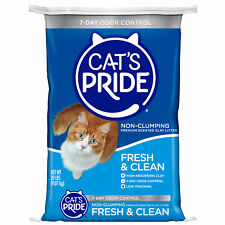Sweetener Linked to Liver Disease in Dogs
A clinical report appearing in the Oct. 1 Journal of the American Veterinary Medical Association (JAVMA) discusses the sometimes fatal conditions developed by dogs that have ingested xylitol. Xylitol, a sweetener found in many sugar-free chewing gums, candies, baked goods and toothpastes, is a naturally occurring ingredient that may have far-reaching negative health effects on dogs.
"Not all things that are natural are safe," said veterinary toxicologist Sharon Gwaltney-Brant, who along with veterinarian Eric K. Dunayer co-authored the report. "There are plenty of things in the environment that are toxic to pets."
While not all pets become ill after eating xylitol, Dr. Gwaltney-Brant said the public – and especially dog owners – needs to be aware of the potential dangers. She added that pet owners should make sure that products containing xylitol are kept away from dogs. If an owner suspects that their dog has eaten products containing xylitol, they should contact their veterinarian immediately.
"The potential for severe illness is very high," she said. "People don’t think sugar-free gum can kill their dog. I didn’t before I got into this. But this is something people should be aware of."
Dr. Gwaltney-Brant described the potential negative xylitol effects on dogs as a "species difference."
"People only absorb a certain percentage of xylitol," she said. "The human body doesn’t even notice it. However, in dogs, xylitol triggers significant insulin release, which drops the blood sugar. It is definitely a species difference. People aren’t in danger from sugar-free gum containing xylitol; dogs are."
Some sugar-free chewing gums, Dr. Gwaltney-Brant said, are as much as 70 percent xylitol, depending on the brand and whether the product is used as a primary sweetener. She recommends that if a 22-pound dog ate the equivalent of 3 to 4 pieces of some gum products the dog should be given medical attention immediately.














